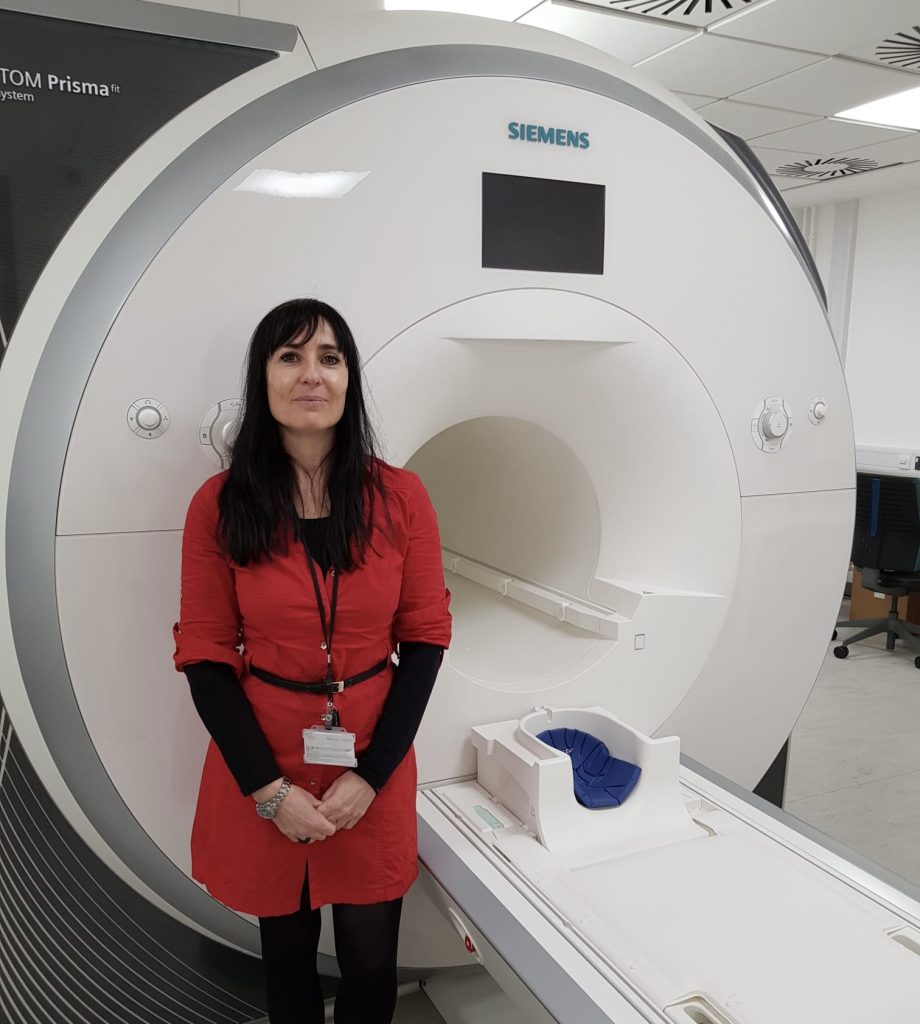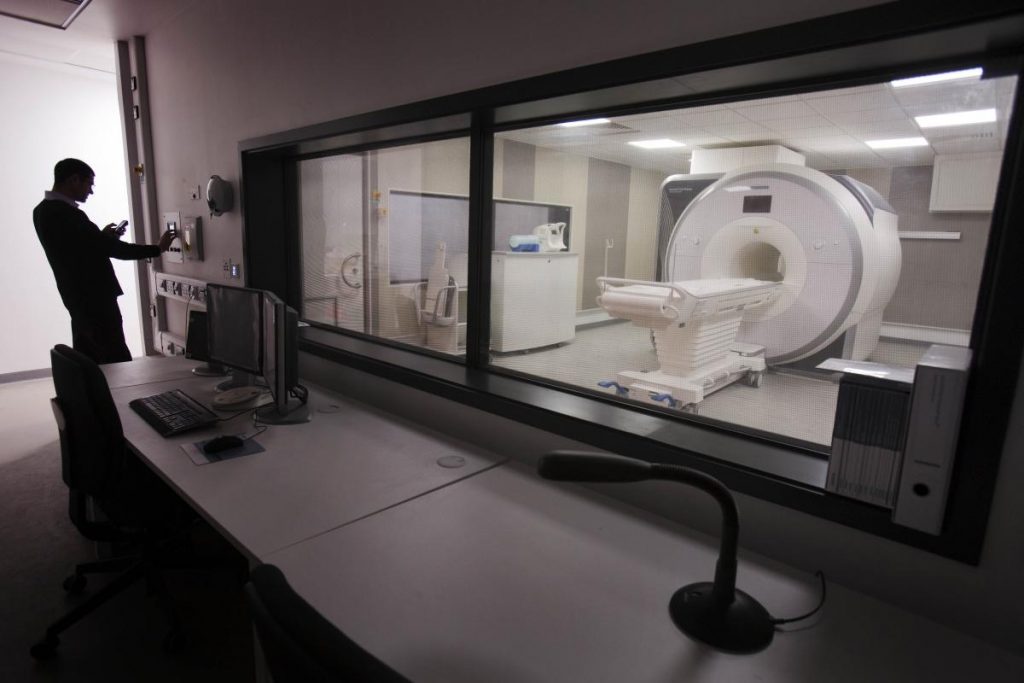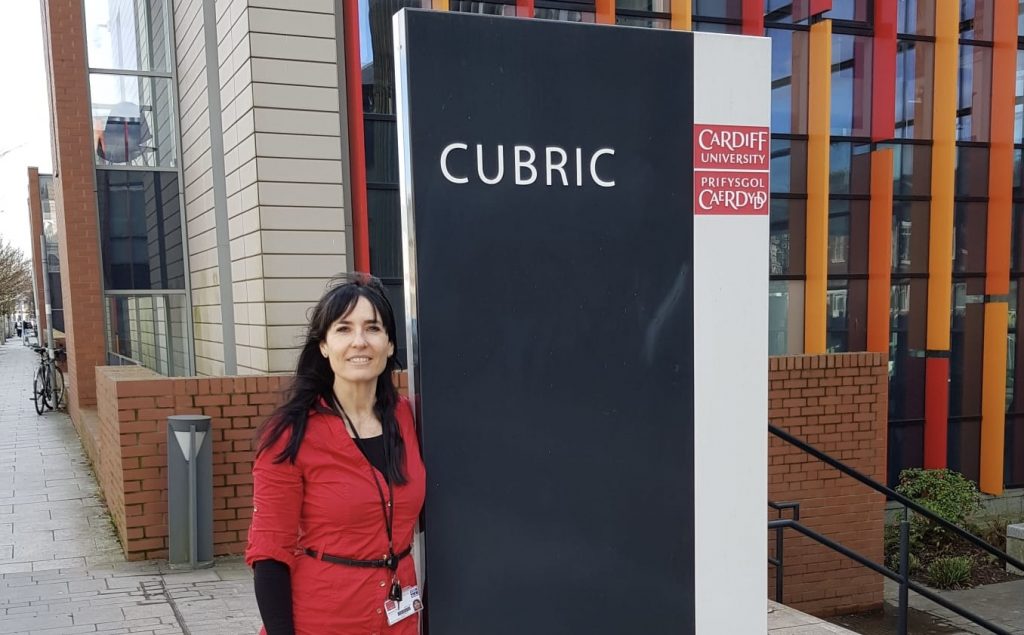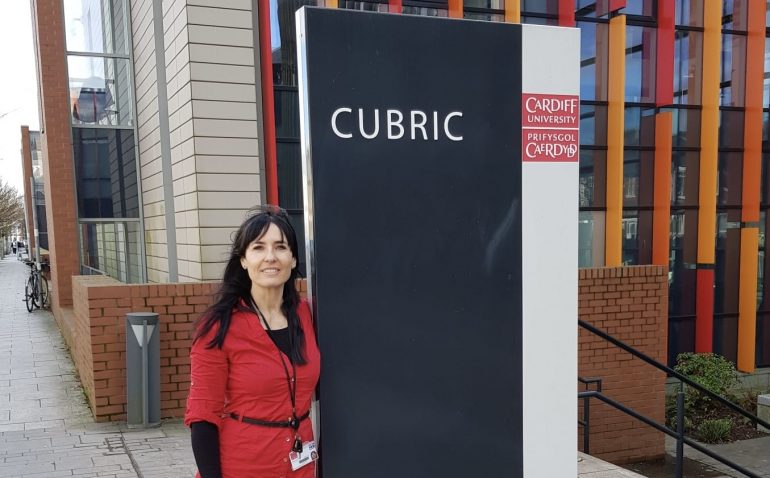Volunteers between 60 and 75 wanted to study why older people seem to be more sensitive to the impairing effects of inflammation
NEUROIMMUNOLOGY research is being conducted at Cardiff University to investigate why the brain becomes more sensitive to infections as we age.
The project, which is NHS approved, is being conducted at Cardiff University Brain Research Imaging Centre (CUBRIC), one of the world’s leading brain imaging centres.
Doctoral Researcher, Eva Periche-Tomas, 51, will test 32 subjects equally split between young and old, to analyse what occurs in an ageing brain during an inflammatory process such as infection.

Miss Periche-Tomas, who lives in Lakeside, comes from Barcelona where she worked as a clinical psychologist for 12 years, specialising in mood and anxiety disorders.
“At that time, I was already fascinated by how therapy could lead to changes in the mechanics of the brain and how different parts of the brain communicate to achieve those changes,” said Miss Periche-Tomas.
“I noticed that my older patients didn’t respond to therapy and medication in the same way and the prognosis in most of these cases was quite poor.”
She moved to the UK to explore this further and changed career paths to neuroscience, settling on Cardiff to run the project as a doctoral candidate.

Testing was halted due to the pandemic, but the team were able to resume in August 2021.
The first session that volunteers will attend is a screening, to check their eligibility criteria and this lasts 90 minutes.
If eligible, they’re invited to come for two full days of testing. In the first of these sessions, they’ll receive either interferon beta or a placebo.
“Interferons are proteins that are part of our defence system, and they have this name because they ‘interfere’ with the viral response, preventing viruses from replicating,” explained Miss Periche-Tomas.
In the second session, patients will receive the opposite from what they had in the first one, without knowing which they have had either time.
Patients will undergo a brain scan to see if changes can be detected in the brain associated with the intervention.
“In this way, we can see changes in the participant’s physiology, cognition and motivation based on the intervention whether that be interferon or placebo,” said Miss Periche-Tomas.
“Our overall hypothesis is that the older individuals will experience more side-effects such as fatigue and difficulty remembering things, showing them to be more affected by inflammation.”

So far 16 young participants, aged between 18 and 35, have been recruited to test how far they were affected.
“We are testing both young and old as we can see the differences between the two and thus determine the factors that drive this contrast,” said Miss Periche-Tomas.
Testing among the older generation, aged between 60 and 75, is currently underway and the team are recruiting a further 10 participants.
Miss Periche-Tomas said: “This age range was chosen as when we grow older, research shows that there are some changes in the immune system meaning the system is less able to mount an appropriate response.”
“Yet older individuals have been more difficult to recruit as they need to be healthy and often, they are using medication that can preclude them from taking part.”
The team expect all testing to be completed by June of this year.

Professor Neil Harrison, the head of the project and a neuropsychiatrist, said: “Currently, our understanding of why the brain becomes so sensitive to infections as we age is very limited.
“Eva’s study is one of the first to begin to try and understand this with the ultimate aim of helping identify new targets for future treatments.”
There’s already been a good public response to the project, with Miss Periche-Tomas receiving over a hundred emails enquiring and offering to help.
“I would like to thank the community for their incredible response to my request. We are really happy and glad that they want to help us,” said Miss Periche-Tomas.
If you are interested in this study or would like to know more about other CUBRIC research, please contact CUBRIC@cardiff.ac.uk



